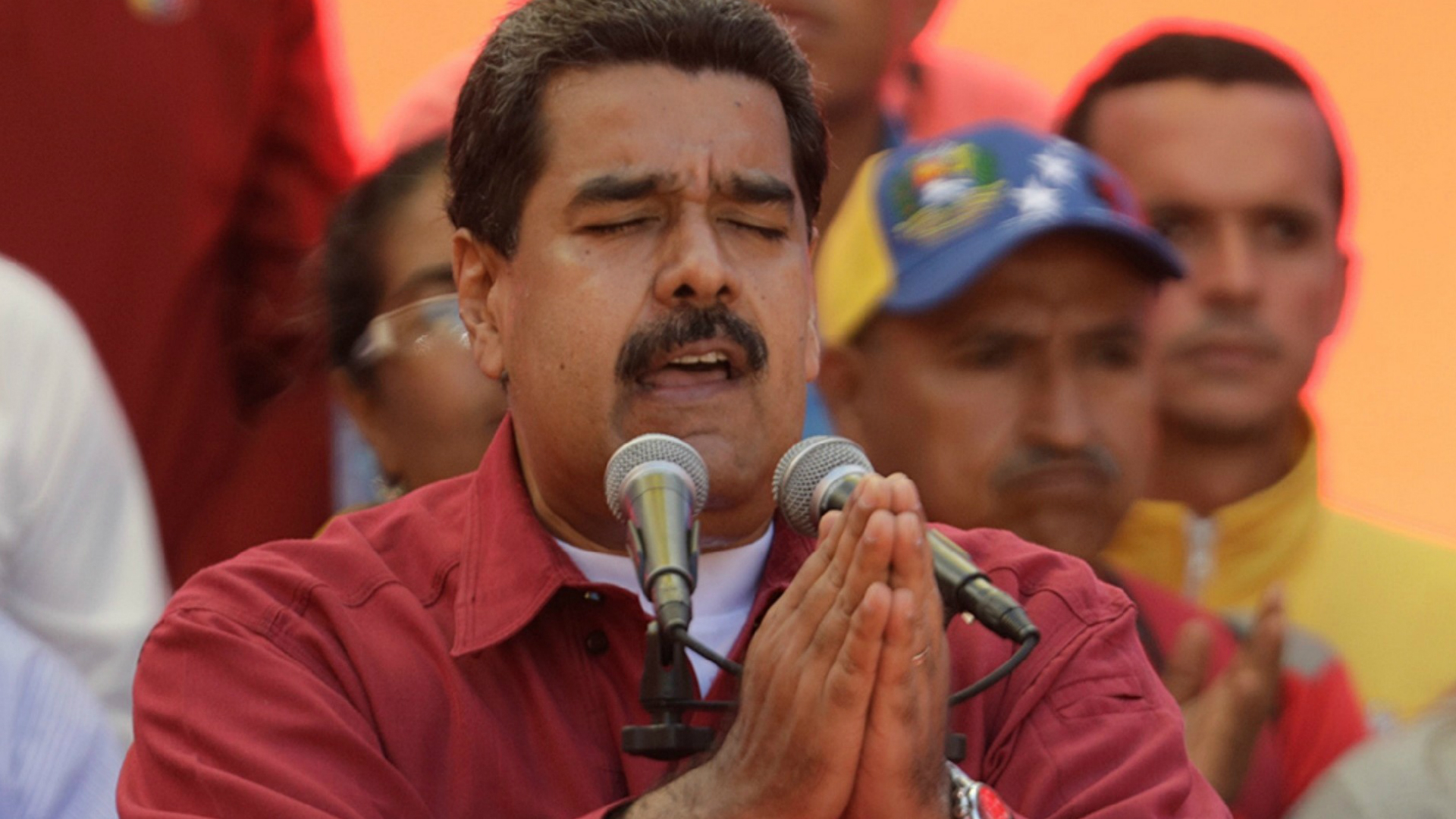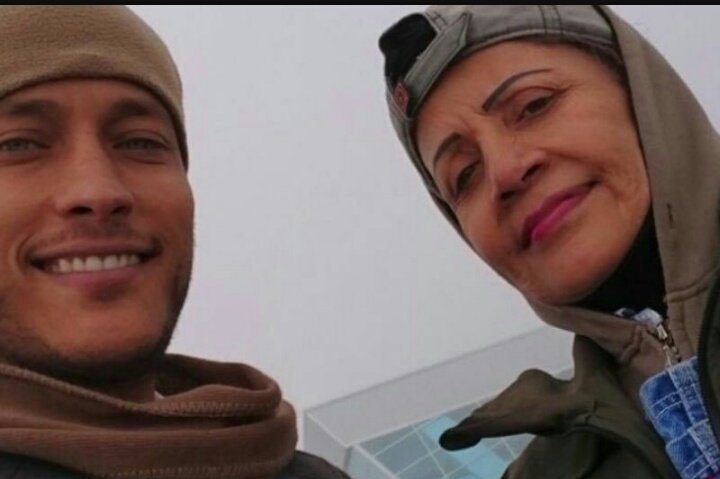
The scheduled dialogue between Chavismo and Venezuelan President Juan Guaido ended in Barbados. However, no progress has been made. The secrecy persists and the only thing evident is that Maduro remains in power, gaining time.
Cristopher Figuera, former director of the Bolivarian Intelligence Service (SEBIN), the political police of Nicolas Maduro, confirmed what has become an open secret: Maduro is a swindler, he uses dialogue as an escape valve when he finds himself cornered.
In an interview with the Spanish newspaper El Pais, Figuera, who was in Maduro’s close circle, confessed, “Maduro talks about dialogue each time he finds himself cornered. Therefore, I think he is a fraudster. What is wants to is to continue in power. Maduro is using (the dialogue) as an escape valve. Dialogue must take place to restore democracy, but Maduro should not be a part of it. It is a maneuver to gain time. He is continuing his scams, marramucias, as we say in Venezuela, to gain time and stay there.”
On Wednesday, 10th July, the meeting with the purpose of attempted dialogue ended in Barbados. It was characterized by secrecy, whereby nobody knows what is going on or what is being negotiated inside. This time, not even the press could have obtained any unofficial information on the subject.
Guaido’s allies have rejected dialogue with Chavismo because Maduro has violated all agreements in previous negotiations, and no meeting has been positive for the country; on the contrary, the regime remains in power.
Does each dialogue strengthen Maduro and give him more time?
The dictatorship in Venezuela has found the formula to put off international sanctions against it. While it affirms that it is willing to negotiate, dialogue, and converse with Guaido, it distracts the international community from what should be the main objective: end the regime that has caused the greatest humanitarian crisis in the region and the most significant exodus of refugees in the history of Latin America.
Voice of America journalist, Celia Mendoza, who is in Barbados covering the Norwegian-mediated dialogues, told PanAm Post that talks might continue next Monday.
“One of the members of Guaido’s working group told me that the mechanism is continuous and divided into days and meetings,” she explained.
#10Jul #Diálogo@CELIAMENDOZA25, periodista de @VOANoticias, desde Barbados: “las negociaciones entre el régimen y la oposición venezolana han sido herméticas y explica que podría existir tensión de parte de los funcionarios de Maduro” pic.twitter.com/gKxLBQwTBm – @TVVnoticias
— Reporte Ya (@ReporteYa) July 10, 2019
“It makes sense that the process of Norway continues. This schedule that ended would be the one in Barbados, but there is a possibility that other rounds will begin in other locations at other times. The negotiations will continue on Monday process through Norweigian mediators traveling to Caracas. They tell me that Maduro is interested in this because he faces sanctions and does not have the power of the strength,” the journalist added.
The fact is that participating in the Norweigian negotiations implies more time for Maduro in power. Time goes by, rounds of talks go by, the conversations are secretive, and there is no visible progress. Meanwhile, the international community, especially the European Union, has preferred to postpone sanctions on Maduro.
Jorge Tricas, professor of Political Sociology at the Catholic University Andrés Bello (UCAB), explained to PanAm Post that the only thing that has been achieved with the dialogues is that Chavismo gains time and recognition.
“What’s at stake is prolonging the stay of tyranny in the state apparatus. If you propose an election in 9 months, it means that Maduro has already gained time. However, the important thing is that here to gain time means to gain publicity. Chavismo wants to improve its image. When you accept and promote the negotiations, you make the enemy appear fair and reasonable,” the specialist explained.
Tricas pointed out that as a result of the negotiations, Maduro goes from being a criminal to a “reasonable enemy,” and that is an image that gives him time.
“It is not a dialogue when the ruling party is unwilling to give in. Cuba, for example, has an international image of goodwill towards sport or culture, but that image does not correspond to what is happening on the island, and that is what the tyranny wants to achieve with these meetings in Barbados,” Tricas added.
Maduro wants to look like a negotiator and a kind man. However, while he talks about the need to sit down and negotiate, he murders the lieutenant commander, does not give the body to his relatives, and snatches the eyesight of a 16-year-old boy.
“You don’t understand how to have a dialogue with people who say they are willing to talk, and at the same time, murder, and take away a child’s eyesight,” Tricas said.
The specialist added that “these meetings generate false hopes.” Ultimately, nothing changes. We go from being hopeful to frustrated with nothing in our hands except lost time.”
D’mar Cordoba Salamanca, a Colombian constitutional lawyer, told PanAm Post that the proposed negotiation between Chavismo and the opposition is not a good omen.
“I think that the strategy will always be the same, and it is to give oxygen and more opportunities for visibility to the narco-government of Nicolas Maduro as they did with the FARC. The peace agreement in Colombia became a shield for the FARC terrorists and the same can happen with the dictatorship,” he added.
We have to remember that according to the Norwegian public broadcaster NRK, encounters “occurred in Cuba before and have continued for a long time,” and so far we see no progress regarding Venezuela.
Fruitless dialogues
There is a fear in Venezuela that Guaido is willing to negotiate in deplorable conditions or that he will accept an unacceptable agreement, as he was going to do on 30th April when news broke of the existence of a dialogue with Chavismo, in which the illegitimate Supreme Court of Justice would remain in command of the Judiciary despite having violated the Constitution constantly.
In January 2017, the Venezuelan opposition asserted that it would no longer participate in negotiations if the regime did not comply with its commitments, including the release of political prisoners, the acceptance of humanitarian aid and the presentation of an electoral calendar. However, the dictatorship did not comply, and despite this, the Democratic Unity Roundtable has given in to the new negotiation, three more times.
For Venezuela, every attempt at dialogue with Chavismo has been a “headache.” The political prisoners are used as “chess pieces” as the regime frees some while imprisoning others. It is a revolving door effect.
During past attempts at negotiation, the number of prisoners of conscience multiplied, the humanitarian crisis worsened, and the opposition was exposed to the world. The more it gave in, the stronger the Chavismo became. Between the dialogues, the opposition opted for a recall referendum, which was unsuccessful because the dictatorship unconstitutionally dismantled it. Instead of demanding its execution at all costs, the MUD let it go.
The same thing happened with a promised march to the presidential palace of Miraflores, a demonstration demanded by the people to put even more pressure on Maduro’s regime. However, the MUD itself decided to postpone it under the excuse of a new attempt at dialogue with the participation of the Vatican. The dictatorship did not give in, the Vatican withdrew from the table, and the leadership was again humiliated.
As the months go by, after the failed attempt at dialogue, the Venezuelan population took to the streets to express their discontent, and the distressed community joined them. After four months of protests, the consequence was brutal repression, and 150 Venezuelans were murdered at the hands of the police and the paramilitary collectives of the ruling party. The need for more radical alternatives arose.
From there came the proposal for the plebiscite that would first reject the Constituent Assembly; second, makes demands to the military; third, create a mandate to the National Assembly with the conformation of a Government of national unity through the renewal of powers; and additionally, a “Zero Hour” that never arrived.
The mandate of the population was never executed. The illegitimate Constituent Assembly is still in power, and the military did not comply with the result of the plebiscite. It has been 168 days since Juan Guaido was sworn in, and Nicolas Maduro is still in Miraflores.
 Versión Español
Versión Español













